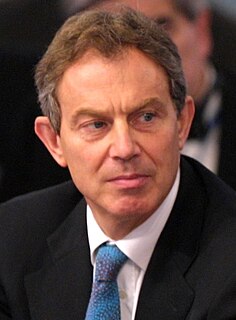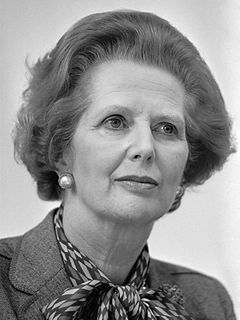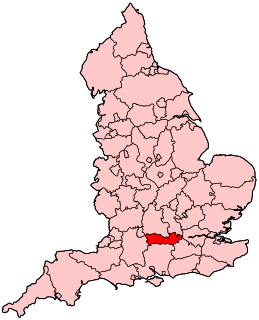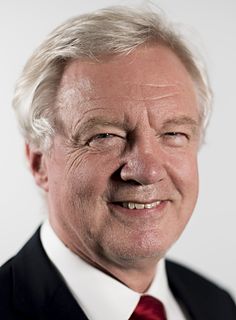
The 1997 United Kingdom general election was held on 1 May 1997. The governing Conservative Party led by Prime Minister John Major was defeated in a landslide by the Labour Party led by Tony Blair, achieving a 179 seat majority.

The 1983 United Kingdom general election was held on Thursday 9 June 1983. It gave the Conservative Party under the leadership of Margaret Thatcher the most decisive election victory since that of the Labour Party in 1945, with a majority of 144 seats.

The 1950 United Kingdom general election was the first general election ever to be held after a full term of Labour government. The election was held on Thursday 23 February 1950, and was the first held following the abolition of plural voting and university constituencies. The government's 1945 lead over the Conservative Party shrank dramatically, and Labour was returned to power but with an overall majority reduced from 146 to just 5. There was a 2.8% national swing towards the Conservatives, who gained 90 seats. Labour called another general election in 1951, which the Conservative Party won.

David Digby Rendel was a British politician for the Liberal Democrats. He was the Member of Parliament (MP) for Newbury from 1993 to 2005. He won the seat in a by-election in May 1993 caused by the death of Judith Chaplin, and he held it until his defeat at the 2005 general election to Conservative candidate Richard Benyon. At the time he lost his seat he was the Liberal Democrats' spokesman on Higher and Further Education. In September 2014, Rendel was selected as Liberal Democrat candidate in the 2015 general election for the seat of Somerton and Frome in Somerset; however, he lost to the Conservative candidate, David Warburton.

Newbury is a constituency represented in the House of Commons of the UK Parliament from 2019 by Laura Farris, a Conservative. It was created by the Redistribution of Seats Act 1885 and has been in continual existence since then.

The 2010 United Kingdom general election was held on Thursday 6 May 2010, with 45,597,461 registered voters entitled to vote to elect members to the House of Commons. The election took place in 650 constituencies across the United Kingdom under the first-past-the-post system.
The Dunfermline and West Fife by-election was held on 9 February 2006, following the death of the sitting Labour MP Rachel Squire, on 6 January. The by-election was the first seat to change hands in the 2005 Parliament, when Willie Rennie won the seat for the Liberal Democrats, gaining it from Labour by 1,800 votes. The BBC reported a swing from Labour to the Liberal Democrats of 16.24%.

The Roxburgh, Selkirk and Peebles by-election was significant in that it led to the election of David Steel, who went on to lead the Liberal Party, to the British House of Commons for the first time. As such it was a milestone in the revival of that party's political fortunes from their nadir in the 1950s.
The Liverpool Walton by-election was held on 4 July 1991, following the death of the Labour Party Member of Parliament Eric Heffer for Liverpool Walton, on 27 May.

The Monklands East by-election was held on 30 June 1994, following the death of the Leader of the Labour Party John Smith, Member of Parliament (MP) for Monklands East in Scotland, on 12 May.
Parliamentary by-elections in the United Kingdom occur when a Member of Parliament (MP) vacates a House of Commons seat during the course of a parliament.

The 1982 Beaconsfield by-election was a parliamentary by-election held on 27 May 1982 for the British House of Commons constituency of Beaconsfield in Buckinghamshire.
The Rotherham by-election was held on 5 May 1994, following the death of Labour Party Member of Parliament for Rotherham Jimmy Boyce.

The Barking by-election was held on 9 June 1994, following the death of Labour Party Member of Parliament for Barking Jo Richardson. Richardson had represented the seat since the February 1974 general election, following Tom Driberg.

The 2007 Sedgefield by-election was a by-election held on 19 July 2007 for the British House of Commons constituency of Sedgefield in County Durham. The Ealing Southall by-election was also held on 19 July.
The Hove by-election was held on 8 November 1973 for the British House of Commons constituency of Hove in East Sussex.

The 2008 Haltemprice and Howden by-election was a by-election held in the United Kingdom on 10 July 2008 to elect a new Member of Parliament (MP) for constituency of Haltemprice and Howden. The by-election was triggered by the surprise and controversial resignation from the House of Commons of the sitting MP David Davis on 12 June 2008. Davis's stated intention was to spark a wider public debate on the perceived erosion of civil liberties in the UK by recontesting his seat on this single issue platform, launched as the David Davis for Freedom campaign. The two other main political parties, Labour and the Liberal Democrats, declined to field candidates; the Liberal Democrats as they supported Davis in this issue and Labour as they considered the election a "political stunt".
The 1973 Chester-le-Street by-election was a parliamentary by-election held for the British House of Commons constituency of Chester-le-Street on 1 March 1973.

The Barnsley Central by-election was a by-election for the Parliament of the United Kingdom's House of Commons constituency of Barnsley Central which took place on 3 March 2011. The by-election resulted in the Labour Party holding the seat with an increased majority.

The Corby by-election was a by-election held in England on 15 November 2012 to elect a new Member of Parliament (MP) for the constituency of Corby in the House of Commons of the United Kingdom. The election was held on the same day as by-elections in Cardiff South and Penarth and Manchester Central, the first direct election for the post of Mayor of Bristol, and the first Police and Crime Commissioner elections. Andy Sawford, the Labour Party candidate, won with 48% of the vote. The Conservatives' and Liberal Democrats' vote dropped significantly and UKIP came third with their highest-ever vote in a parliamentary by-election to that date.















